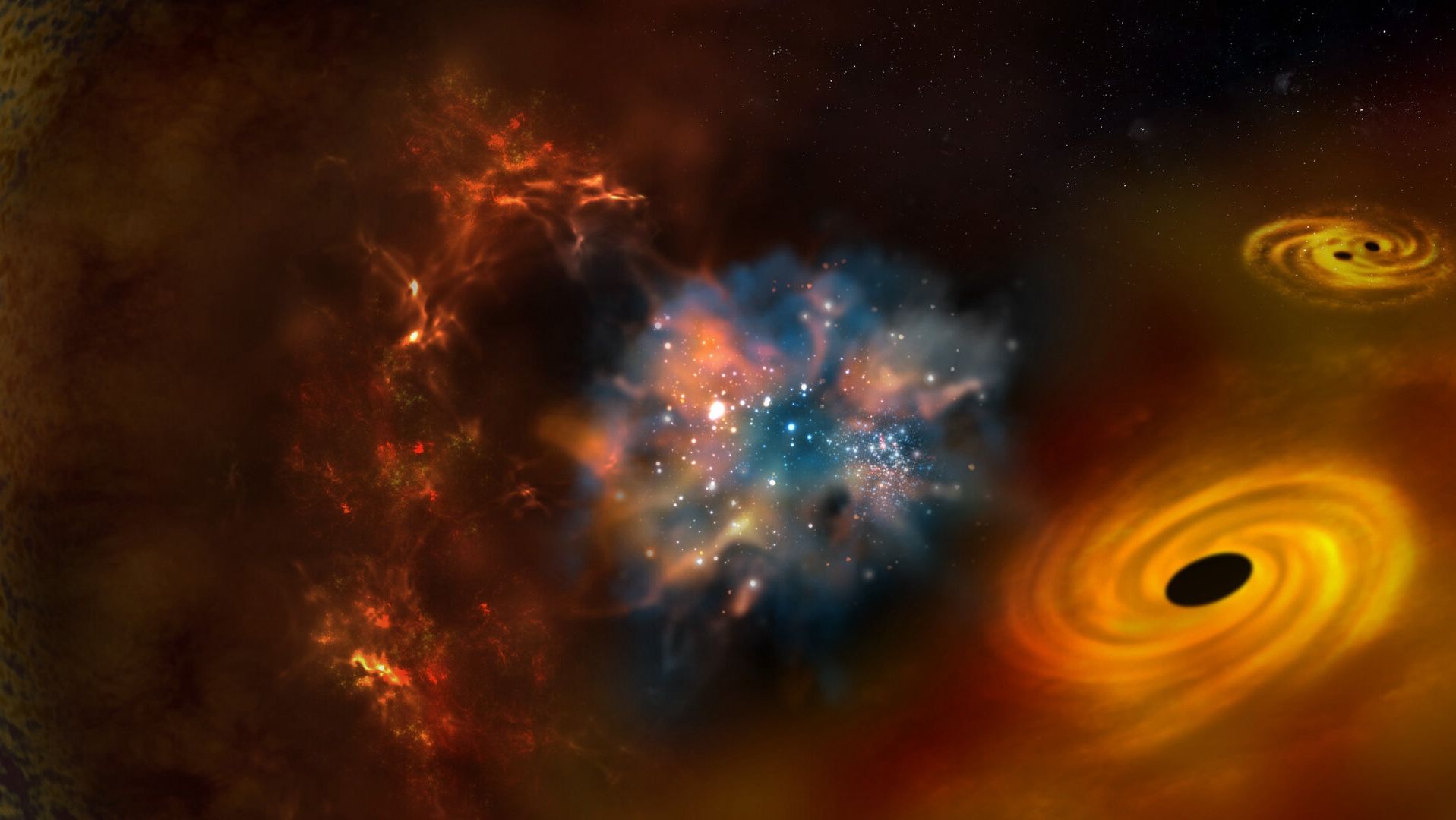Dark matter created before the Big Bang: an intriguing theory...
Published by Adrien,
Source: Journal of Cosmology and Astroparticle Physics
Other Languages: FR, DE, ES, PT
Source: Journal of Cosmology and Astroparticle Physics
Other Languages: FR, DE, ES, PT
Follow us on Google News (click on ☆)
This theory might completely change our understanding of black holes and dark matter, two of the Universe's greatest mysteries.

According to a recent study, dark matter might be composed of black holes created just before the Big Bang during a contraction phase of the Universe. If this hypothesis is correct, it could be confirmed by future observations of gravitational waves. Today, about 80% of the Universe's matter is dark matter, a substance that cannot be seen or directly detected. Yet, its existence is inferred from its gravitational effects on stars and galaxies.
Researchers have explored the idea that these black holes emerged due to density fluctuations during the contraction phase of the Universe, just before it began to expand again in what we call the Big Bang.
This theory, known as bounce cosmology, proposes that the Universe contracted to a minuscule size before bouncing and expanding, marking the Big Bang. During this bounce, black holes could have formed from extremely dense matter fluctuations.
These small black holes, if sufficiently massive, might have survived till today and could represent a part, or even the entirety, of dark matter. This idea differs from the traditional model, where the Universe began from a singularity, an infinitely small and dense point, followed by a rapid expansion.
Scientists believe that future technologies, like the LISA gravitational wave observatory or the Einstein Telescope, could detect the waves produced during the formation of these black holes. This could confirm this new theory about dark matter.
Patrick Peter from CNRS highlights the significance of this research, which provides an alternative explanation for the origin of black holes and their possible role in the Universe.